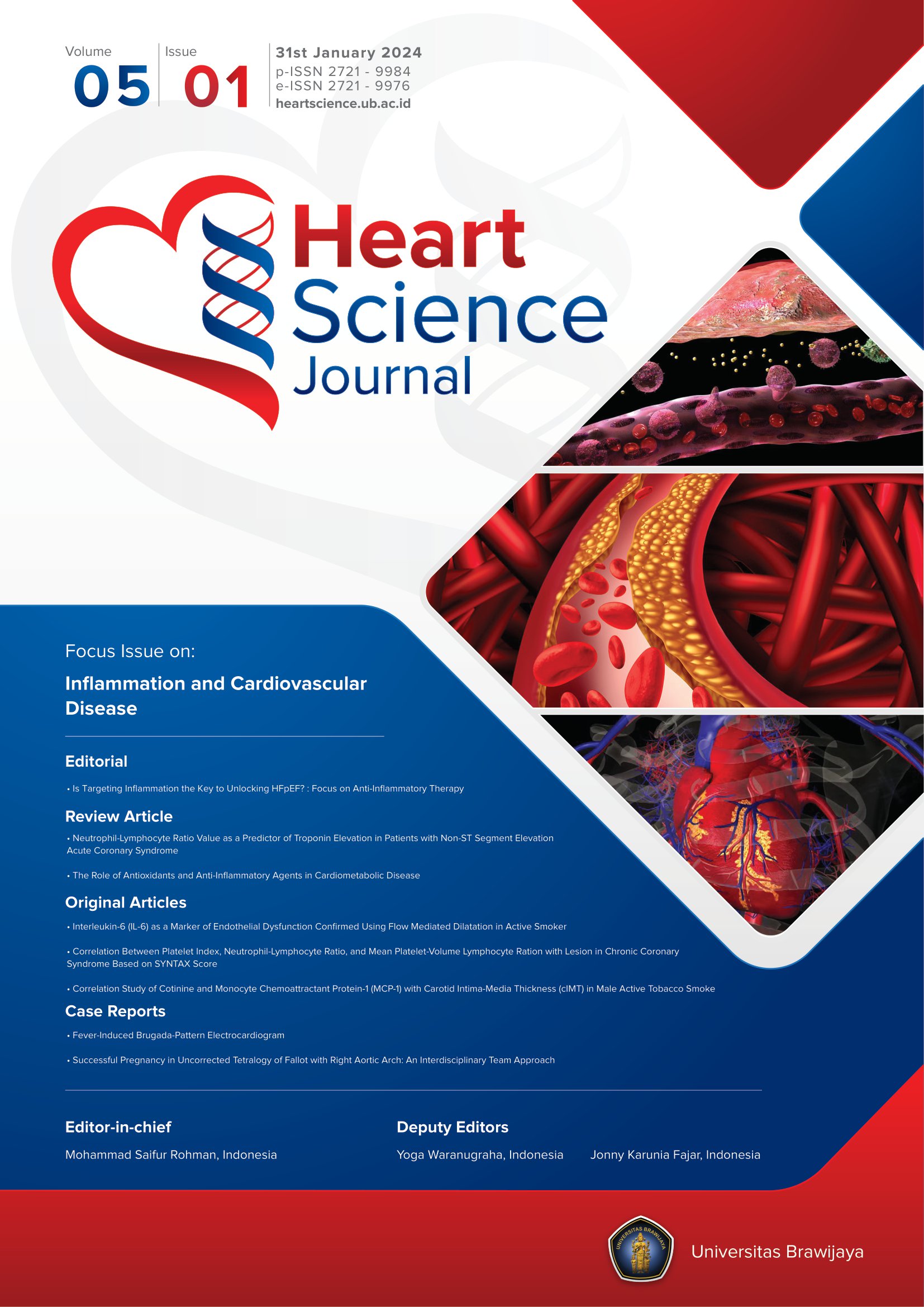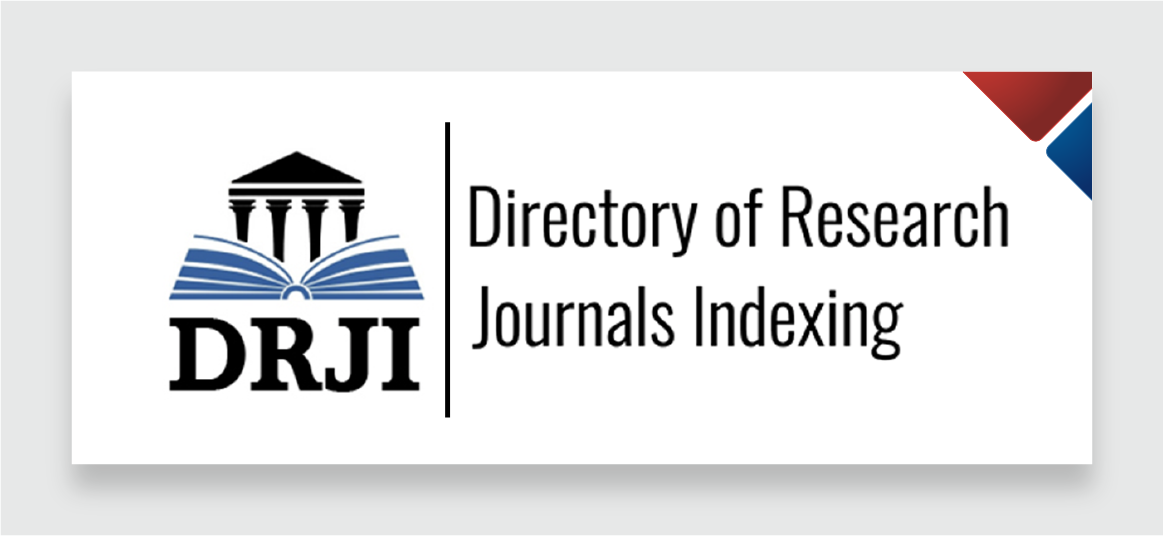The Importance of Managing HbA1c in Coronary Artery Disease: Keep It Low
Abstract
Keywords
Full Text:
PDFReferences
Hanson MA, Fareed MT, Argenio SL, Agunwamba AO, Hanson TR.Coronary artery disease. Primary Care: Clinics in Office Practice 2013;40:1-16.
Robby HD KK. The Risk Factor of Hypertension and Sex to Coronary Artery Disease at jenursari Islamic Hospital Surabaya The Indonesian journal of Public Health 2018;13(1):134.
Biomy R AA. The Relation between Glycated Hemoglobin and Severity of Coronary Artery Disease in Non-Diabetic Patients with Acute Coronary Syndrome. Journal of Cardiology & Current Research 2017;8(4):8-11.
Stolar M. Glycemic Control and Complications in Type 2 Diabetes Mellitus. The American Journal of Medicine 2010;123:S3-S11.
Selvin E, Coresh J, Golden SH, Brancati FL, Folsom AR, Steffes MW. Glycemic Control and Coronary Heart Disease Risk in Persons With and Without Diabetes: The Atherosclerosis Risk in Communities Study. Archives of Internal Medicine 2005;165:1910-6.
Leong A, Chen J, Wheeler E, et al. Mendelian Randomization Analysis of Hemoglobin A1c as a Risk Factor for Coronary Artery Disease. Diabetes Care 2019;42:1202.
Ghaffari S, Niafar F, Separham A, Niafar M, Pourafkari L, Nader ND. Association between HbA1c levels with severity of coronary artery disease and short-term outcomes of acute ST-elevation myocardial infarction in nondiabetic patients. Therapeutic Advances in Cardiovascular Disease 2015;9:305-13.
Hong L-F, Li X-L, Guo Y-L, et al. Glycosylated hemoglobin A1c as a marker predicting the severity of coronary artery disease and early outcome in patients with stable angina. Lipids in Health and Disease 2014;13:89.
Habib S, Ullah SZ, Saghir T, et al. The Association between Hemoglobin A1c and the Severity of Coronary Artery Disease in Non-diabetic Patients with Acute Coronary Syndrome. Cureus 2020;12:e6631-e.
Geng J, Zhang Y, Wang B, Xie J, Xu B, Li J. Glycosylated hemoglobin levels and clinical outcomes in nondiabetic patients with coronary . artery disease: A meta-analysis. Medicine (Baltimore) 2017;96:e6784-e
DOI: https://doi.org/10.21776/ub.hsj.2020.001.03.1
Refbacks
- There are currently no refbacks.
Copyright (c) 2020 Brawijaya Cardiovascular Research Centre

This work is licensed under a Creative Commons Attribution 4.0 International License.









